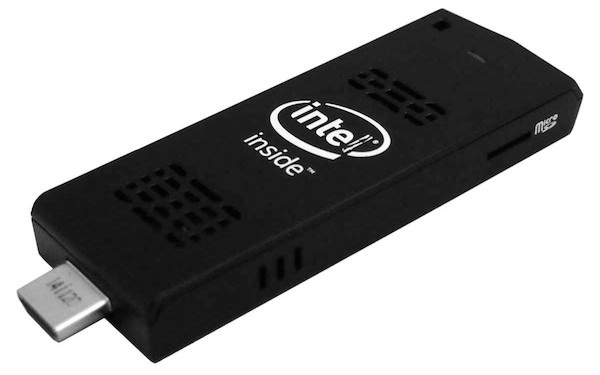It's long been possible to install and run Linux from a USB stick—if you have a full computer to boot it from. But starting this week, Intel (INTC) and Ubuntu are partnering to deliver an open source operating system that requires only a monitor with an HDMI port in the form of the Intel Compute Stick.

It’s long been possible to install and run Linux from a USB stick—if you have a full computer to boot it from. But starting this week, Intel (INTC) and Ubuntu are partnering to deliver an open source operating system that requires only a monitor with an HDMI port in the form of the Intel Compute Stick.
Unlike “live USBs,” which Linux users can create by installing operating systems such as Ubuntu to USB storage devices, Intel’s Compute Stick contains both storage and all of the basic hardware necessary to run a computer. Users need only to add a monitor to use the system—along with a wireless mouse and keyboard that connect to the system via Bluetooth, if they wish.
Intel offers a Windows-based version of the Compute Stick, but starting July 2, it is also launching one that runs Canonical‘s Ubuntu Linux operating system. The Ubuntu product ships with 1GB of memory and 8GB of on-disk storage—less than the Windows alternative—but its lower system requirements and open source environment should make it attractive to customers seeking a sleek and flexible on-the-go computing solution.
It’s also a boon for Ubuntu that the Windows version of the Compute Stick ships with McAfee antivirus protection, apparently because the Windows ecosystem is now so bad on the security front that adding antivirus software to portable computing solutions is a prerequisite for commercial companies. Ubuntu does not require security add-ons, reducing costs and improving performance.
To be sure, there are plenty of good reasons not to invest in a device like the Intel Compute Stick. But this and similar devices have clear benefits for certain types of users, such as those who travel frequently. And however popular the product proves in the market, Intel’s endorsement of Ubuntu as a software platform for this major commercial product is a positive sign for the open source ecosystem as embedded and ultra-portable computing becomes increasingly important.
About the Author(s)
You May Also Like


